QuestionHave a 2.5 yr old male pomeranian that was a rescue and neutered a month ago. There is another neutered male in the house, a chihuahua. The chihuahua is my roommates and he is a bit jealous and bossy. Have been having a tough time housebreaking the pomeranian. Sometimes he will go outside, then come in and go again on the leg of a table or on the carpet..and then he will go hide. He is pooping on my bed after being outside...It was suggested at a pet store that it could also be a dominance issue. He is a good dog, no health issues..I can not get him to use pads and the crate traininng does not seem to be going well either. He goes out only to come in and go again. Would like to know if you have any advice. His only other issue is he hates to be on a leash..and is okay dragging one but not if he sees it in your hand. Was told by a rescue organization to let him drag it until he gets used to it but still does not like to be lead around etc. HELP I love the little guy and want to help him out
Answer
Hi Teresa,
If this is a marking problem, it should die down as your dog's hormone levels decrease after being neutered. If your dog simply isn't house trained, you need to be diligent, and prevent your dog from having the opportunity to soil in the house.
If your dog doesn't do all that he should outside during a walk, DO NOT give him the run of your home when you go back inside! You KNOW he has to "go", and you're setting him up to have another accident inside your home. Instead, return to your house, and put him in his dog crate. A crate should only be large enough for the dog to stand up, turn around and lay down. Any larger, and your dog will have room to soil, which is NOT what a crate is for. Crates work to help train a puppy because of a puppy's natural instinct is to keep their bedding/sleeping area clean. After 20 minutes of being in the crate, take your dog outside again for another try. When walking, try using a "cue word", which in time your dog will learn so he'll more or less "go" when you give her the cue. This is very handy in bad weather! When you reach the toilet area walk back and forth or circle around and around. At the same time say and repeat a cue word you would like to attach to the act of your dog eliminating. You can use "hurry up", "go potty", etc. just pick out a cue word or short phrase and don't change it. Use a happy encouraging voice. The moment your dog has finished going to the bathroom, enthusiastically praise and reward him, and give him a treat. Not just any treat, something "high value", such as a tiny bit of hot dog or a little piece of cheese. It needs to be a memorable treat so your dog understands what a good boy he's been. If you think your dog still needs to go to the bathroom some more, continue walking, using the same cue word, and rewarding whenever he eliminates. In your dog's mind you are building an association between the cue and him emptying out.
Anytime you are not able to watch your dog, even when you're home, he needs to be crated or contained in a dog safe area. So when you shower, or talk on the phone, or just want to sit and read, your dog needs to be contained. Your puppy should also be contained overnight, and when you leave the house for the same reason. You can use a child-gate or two to contain your dog to part of a room. Lay a thick layer of newspaper down over the entire containment area. Unlike a crate, using the child-gates does not teach the dog from not using your house as a toilet, it simple makes the inevitable clean-ups easier. Never punish your dog for accidents. He doesn't know any better and punishment is quite useless unless you catch him in the very act of having an accident.
It's helpful to keep your puppy's leash on her in the house. Either hold it, or tie the end to your belt loop. This will completely prevent your puppy from being able to sneak off to have an accident. If you see her looking like she's thinking about "going" (walking in circles and sniffing the floor) rush her outside and encourage her to "go" with her cue word.
If you can't trust your dog not to soil in your home, he needs your strict supervision. That means in sight at all times, or crated (or otherwise confined to a safe, dog-proofed area) whenever you can't be watching him. No exceptions.
It is extremely important to get rid of the odor your dog has left with previous markings. Use a specially formulated urine odor eliminator, such as Nature's Miracle or Simple Solution, in all areas that have been marked. Remember that urine soaks through carpet to the padding, so try to clean the padding too, or replace as necessary. Do not use ammonia or other standard household cleaners, since some will leave odors that many pets will feel compelled to mark upon.
Best of luck,
Patti

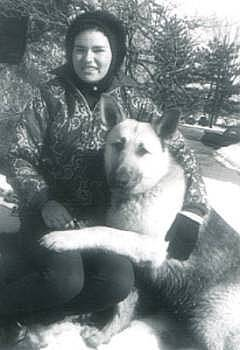 What dog is right for me?
QuestionHi,
my name is Miriam and I am 12 years old.
What dog is right for me?
QuestionHi,
my name is Miriam and I am 12 years old.
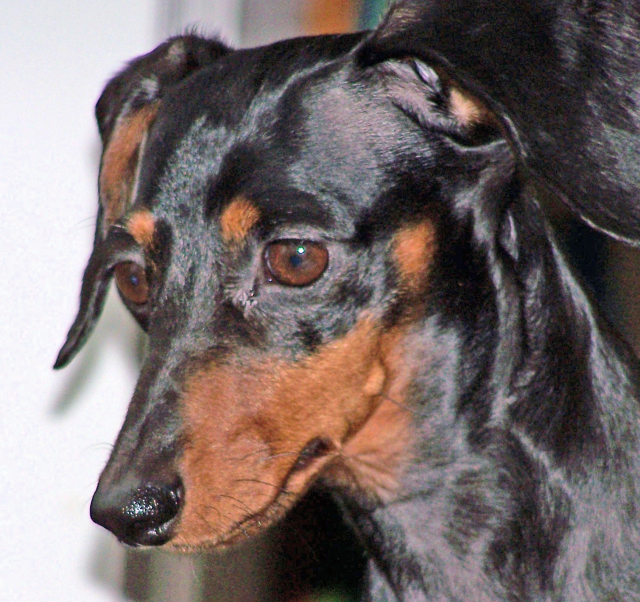 Mini-Daschund Question
Question
Baby
I got a rescus mini about 6 years ago. &n
Mini-Daschund Question
Question
Baby
I got a rescus mini about 6 years ago. &n
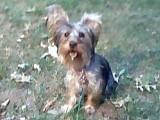 3yr. old Yorkie with ? OCD behavior
Question
Keelee
We live in S.Central WI & with the chan
3yr. old Yorkie with ? OCD behavior
Question
Keelee
We live in S.Central WI & with the chan
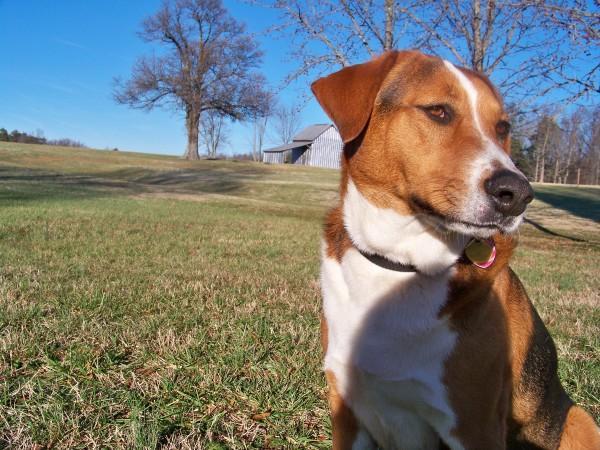 My dogs agression
Question
This is my dog
Hi Shelley!
I have a question f
My dogs agression
Question
This is my dog
Hi Shelley!
I have a question f
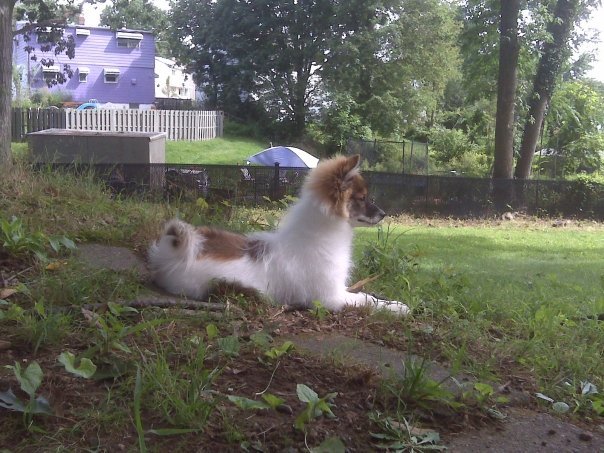 Not sure what my dog is
Question
Ella
I adopted my dog through a rescue s
Not sure what my dog is
Question
Ella
I adopted my dog through a rescue s